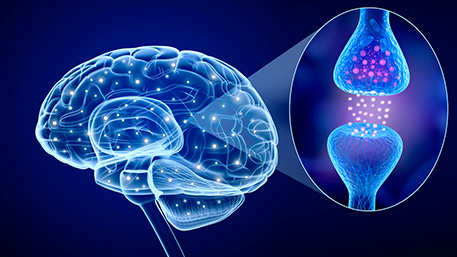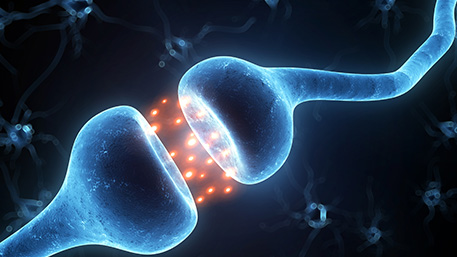The connections in the brain, called synapses, are continuously re-formed throughout life. This means that existing synapses are replaced every 3-6 months with new ones. In a healthy brain the amount of new synapses that are formed matches the amounts that are lost.
In early Alzheimer’s disease however, the loss of synapses becomes accelerated. It is not yet understood why this is the case, however research suggests that synaptic loss occurs very early in the disease progression. The loss of synapses is one of the key features of early Alzheimer’s disease.


Synapses consist of neuronal membranes which are composed of a type of fat known as a phospholipid. The most abundant phospholipid in the human brain is formed via a specific process called the Kennedy pathway.
People living with early Alzheimer’s disease have been shown to have relatively low levels of a range of nutrients in their bodies despite eating a normal diet.
A combination of these nutrients are required in the process of making new synapses in the brain. Omega-3 polyunsaturated fatty acids, uridine and choline, together with several key vitamins and minerals, all work together to help this process.